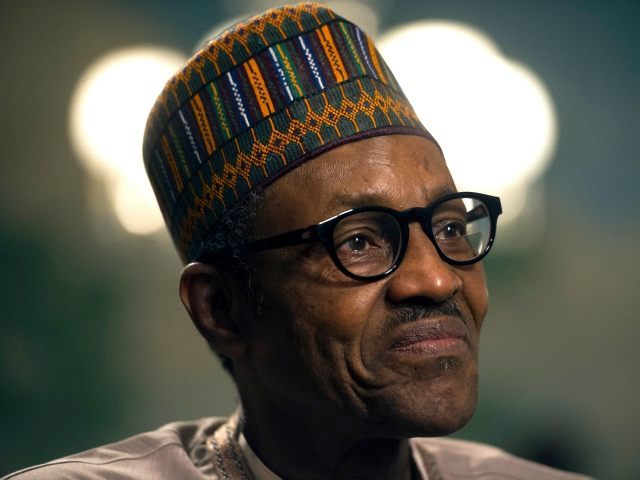Nigerian President Muhammadu Buhari lashed out at the Catholic bishop of Sokoto Monday for criticizing his government’s response to Islamic terrorism in the country.
During his homily on Easter Sunday, Sokoto Bishop Matthew Hassan Kukah said that “insecurity, in particular terrorism, has degenerated since President Buhari came to power in 2015,” an assertion that provoked a swift response from President Buhari.
The bishop lamented the neglect of Boko Haram victims by the Buhari administration while “repentant” Boko Haram insurgents are rehabilitated and freed.
“The nation has since become a massive killing field, as both government and the governed look on helplessly,” the bishop said in his homily.
“Mysteriously, the government is investing billions of naira [the local currency] in rehabilitating so-called Boko Haram repentant members and their other partners in crime, in the belief that they want to turn a new leaf,” Kukah said.
The legislature in Nigeria called for "chopping off the genitals" of convicted rapists on Wednesday amid a surge in rapes nationwide. https://t.co/IOfaP2W920
— Breitbart News (@BreitbartNews) July 17, 2020
“These criminals have waged war against their country, murdered thousands of citizens, destroyed infrastructure and rendered entire families permanently displaced and dislocated,” he continued. “Why should rehabilitating the perpetrator be more important than bringing succour to the victims?”
Mallam Garba Shehu, Buhari’s senior special assistant in charge of media and publicity, in turn accused the cleric of engaging in partisan politics.
“In saying that Boko Haram terrorism is worse than it was in 2015, he did not speak like a man of God,” Shehu said in a statement Monday. “Kukah should go to Borno or Adamawa to ask the citizens there about the difference between 2014 and 2021.”
“He is playing in partisan politics by dragging the president into it,” Shehu said. “If you claim to be a man of God, as Bishop Mathew Hassan Kukah does, ideology should not stand in the way of facts and fairness.”
“Some of the comments are no more than a sample of the unrestrained rhetoric Fr. Kukah trades in, which he often does in the guise of a homily,” the president’s spokesman said.
“We urge well-meaning citizens to continue supporting the administration’s ongoing efforts to secure the country and move it forward,” he added.
Bishop Kukah is not alone in his criticism of government inaction against Islamic terror in Nigeria under President Buhari.
In September 2019, Catholic leaders in Nigeria denounced the state of unrest and violence in the country, urging Buhari to step up to his responsibility of protecting Nigerian citizens.
“Nigerians are tired of losing their dear ones to these killings,” said the national president of the Catholic Laity Council of Nigeria (CLCN), Thomas Adekoya. “Catholics are tired of mourning and burying their priests who are daily murdered for no just cause.”
Mr. Adekoya was referring to scores of killings of Christians at the hands of different Muslim groups, including murders of Catholic priests.
The Catholic Church is at “the receiving end of some of the most bizarre of these killings,” Adekoya said.
"Christians slaughtered in Nigeria — a Commonwealth country!" https://t.co/5Ijf6vpoVq
— Breitbart News (@BreitbartNews) March 18, 2019
“If we hold dear that the protection of lives and property and the welfare of citizens are the greatest responsibility of any government towards its citizens, then our present-day government has fallen far short of the expectation of Nigerians,” he said.
For his part, the Catholic Archbishop of Kaduna Archdiocese, Mathew Man’oso Ndagoso, said that the Buhari government must “wake up to its responsibilities” of ensuring adequate security across the country.
“Anybody who cares for this country must be concerned about what is happening today regarding insecurity,” the archbishop said. “What is happening in the North East which has crept into the North West, South East and South West is becoming alarming.”
“I have made this call before and I will still make it that the responsibility of any government either through the ballot or barrels of the gun or through whatever means is to safeguard the life and property of the citizenry,” he said.
Nigeria’s President Muhammadu Buhari (pictured), who is of the Fulani ethnic group, has been criticized for encouraging a narrative that minimizes the importance of religion in the conflict between Muslims and Christians in central Nigeria.
Two Catholic bishops, as well as other Christian leaders, have insisted that the violence represents a “clear agenda for Islamizing the Nigerian Middle Belt” by using armed Fulani jihadists.
One of the bishops, Matthew Ishaya Audu of Lafia, said in 2018 that the ongoing attacks are not random or economically motivated, but purposefully target Christians.
“They want to strike Christians,” Bishop Audu said, “and the government does nothing to stop them, because President Buhari is also of the Fulani ethnic group.”
In February, 2021, the Nigerian Bishops Conference released a message condemning the ongoing situation of insecurity in the country, again indicting Buhari.
Nigerian Bishop Moses Chikwe and his driver, who were abducted by gunmen on December 27, were released by their kidnappers late Friday, church officials report. https://t.co/0kb4qcEYVP
— Breitbart News (@BreitbartNews) January 4, 2021
“We are really on the brink of a looming collapse, from which we must do all we can to pull back before the worst overcomes the nation,” the bishops declared.
“The very survival of the nation is at stake,” they said. “The nation is falling apart.”
“Serious insecurity, clearly evident in widespread loss of lives and property, for long unaddressed, has left the sad and dangerous impression that those who have assumed the duty and authority to secure the nation are either unable – or worse still, unwilling – to take up the responsibilities of their office,” the bishops added.

COMMENTS
Please let us know if you're having issues with commenting.